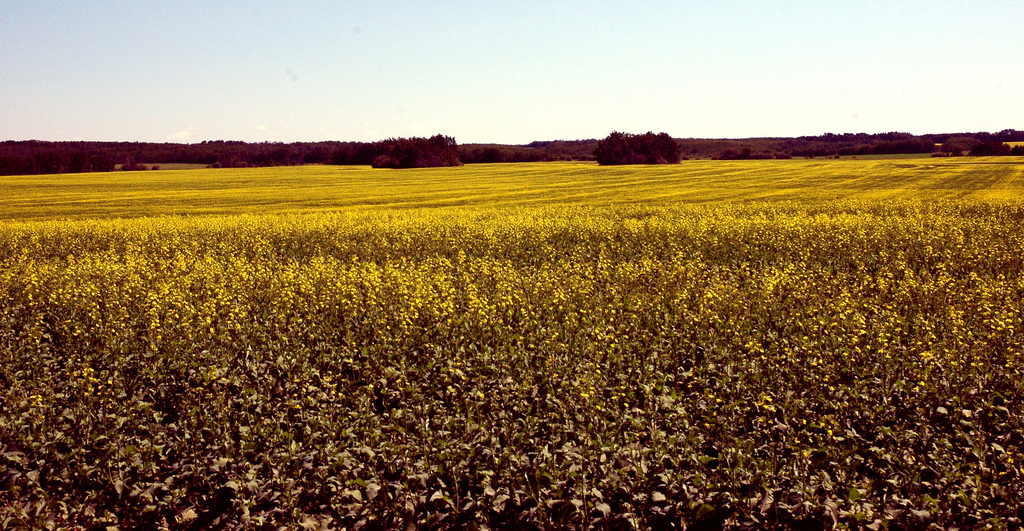I remember around 2005, someone who knew that I was originally from Saskatchewan mentioned to me that there was lots of land for sale in Saskatchewan — and that it might be a good investment. This person happened to be an acquaintance: the parent of one of my son’s classmates. He was also in the business of settling bankruptcies. My antenna went up. I had always known that there was speculation on land in Saskatchewan, but that was usually created by larger farmers trying to expand and in so doing, driving up land values. This was different.
What was also new at that time is that the conservative-minded provincial government had changed the laws around ownership of agricultural land. In 2002 it was decided that land could be bought and sold by buyers residing outside Saskatchewan. That law was changed once again in 2015 to close some of the loopholes that allowed investors to acquire farmland — but much damage had already been done.
That is why the research paper I am about to showcase is so important. It is called “Who is buying the farm?” — a play on the phrase “to buy the farm,” used to call out a death in combat.
In the lead-up to this week’s federal budget, the Centre for Policy Alternatives has published an important document chronicling what has been happening to land — a form of land-grabbing if you will — in one Prairie province. Authors André Magnan and Annette Desmarais are to be commended for researching a tough subject and ferreting out almost non-existent data.
The paper is about speculation and its impact on huge tracts of prime agricultural land in my home province of Saskatchewan. But the same is likely occurring in other western Prairie provinces.
Since the beginning of the last century, as Canada’s breadbasket, Saskatchewan has long been seen as the province that has fed the world. Those of us who follow agriculture know that is not quite how it works (i.e. you can grow the food but it doesn’t mean it gets to the hungry), but we also know that access to land is the basis of food security. If family farmers cannot afford to buy land, then stewardship and food production is in jeopardy.
Between 2002 and 2015, I am ashamed to say, it is the Canada Pension Plan Investment Review Board that has become one of the main entities holding huge tracts of land in Saskatchewan.
The research paper opens with some key questions:
“From 2003 onward, non-farm investors began quietly acquiring large tracts of Saskatchewan farmland. In 2014, the sale of some 115,000 acres of farmland from one investor to another sparked a public controversy. Regina-based investment company Assiniboia Capital Corp., which had built up a large portfolio of Saskatchewan farmland, sold its entire holdings to the Canada Pension Plan Investment Board, for $128 million. The controversy focused on the role of large, institutional investors in the farmland market. Some political critics and agricultural organizations have asked: is it fair for ordinary farmers to be competing with the Canada Pension Plan, with billions of investment dollars at its disposal, for scarce farmland?”
Here is another sample of what this paper includes:
“Between 2007 and 2014, investors paid, on average, $239/acre over the assessed value (a premium of about 50 per cent) for their farmland purchases. By comparison, non-investor arm’s length buyers paid, on average, $96/acre over the assessed value (a premium of 21 per cent). In the booming farmland market of recent years, both farmers and investors have been prepared to pay above assessed value for land that they have acquired. The fact that investors have paid significantly more than other buyers, however, lends support to concerns about the speculative nature of investor activity.”
Each page of this tightly written 12-page brief chronicles the rise of land ownership in Saskatchewan for investment purposes. A huge chunk of that investment occurred after the 2008 economic crisis as investors looked for more secure initiatives for their capital. What could be more secure than prime agricultural land? This research provides a solid beginning to inquiries that should be occurring across the country.
It’s definitely worth a read. Download it for free from the CCPA website.
Lois Ross is a communications specialist, writer, and editor, living in Ottawa. Her column “At the farm gate” discusses issues that are key to food production here in Canada as well as internationally.
Photo: Jeff/flickr





